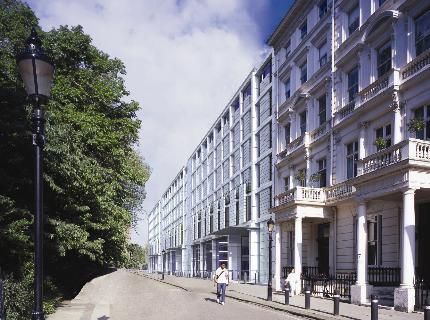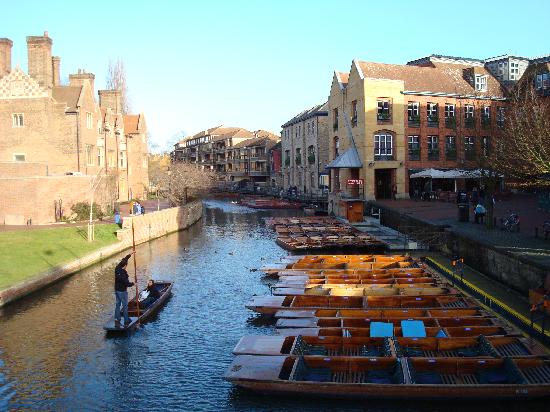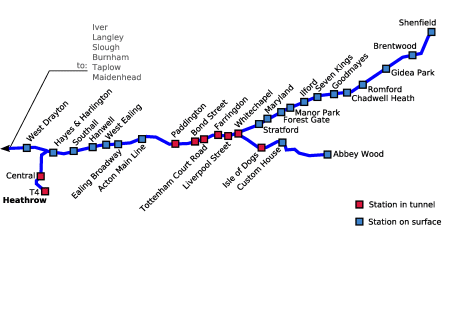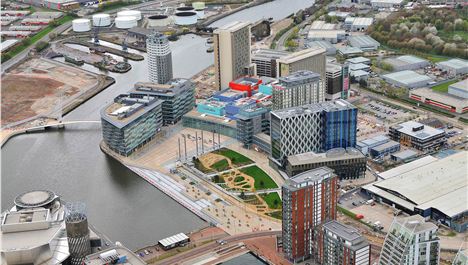603: Education - insights for property investors
07-08-2017
PropertyInvesting.net team 
Education is Key: You might wonder why we are writing an article on education when we are a bunch of property investors. It’s very much to do with trends – particularly longer-term property price rises or stagnation.
Blame It On Something Else: People will often make correlations between religion, race, nationality, language, colour, sex, social background, immigration levels, regional average wages etc to give a feeling about how an economy is doing, and will perform. But we think the over-riding consideration for economic performance is education. Regardless of your social, religious or racial background, in a mature developed country like the UK – if you have a good education you can become fabulously wealthy. The UK on the whole is a very tolerant and open society. You will find like-minded highly educated people networking nicely regardless of their background. There are many reasons for this:
reasons for this:
· Education brings you into networks with other educated people – that is likely to lead to business and employment opportunities and thence wealth
· Being well educated is likely to mean you marry or you partner with someone that is also highly educated – and hence there is then likely to be two higher wage earners living together compounding wealth
· Educated people are more likely to start very successful fast-growing businesses and make serious money
· Educated people are far more likely to be earning higher wages if they are employed in either the public sector or the private sector
· Businesses will tend to move to and/or gravitate towards areas with the best educated and highest skilled people – and set up offices in a good catchment area for their business skills
Property Prices: With this in mind, it does not take a rocket scientist to predict in a 5-25 year time frame – that cities and towns with the most highly educated-skilled people – professionals, engineers, technical workers, political-media establishment – will see their wealth boom and thence p roperty prices in these areas will far outpace the norm.
roperty prices in these areas will far outpace the norm.
Best Place In The World: In summary, you need to follow the money and future money. As the world becomes more globalized, the richest and best educated people will naturally gravitate to the best cities in the world to live with the best education – and for English speaking people – which is most of the world – the London-Oxford-Cambridge polygon has to rank about the best in the world for the concentration of top Universities and nicest places to work along with high earning business, finance and hi-tech. Lots of history, culture – all within an hour from London. No wander there are so many people wanting to come and live in SE England from all around the world – it’s a melting pot of talent from all corners of the world.
Avoid Rural No Tourist Areas: This is a key reason why rural areas, and remote areas with elderly population are seeing stagnant property prices, whilst cities and towns in SE England – along with holiday homes that feed off this wealth in SW England have seen property prices boom. We think this is set to continue, as long as Labour do not get into power and thence create draconian taxes on the middle class and rich (e.g. anyone earning more than £50,000 a year). Furthermore, when the UK leaves the EU there will be less farming subsidies and the public sector well be under even more strain so all but the top tourist areas with second home owners from wealthy cities should be avoided. It’s better to focus on the major cities that are growing far more rapidly than the rural areas.
This dynamic if anything has increased over the last 10 years – despite the broadening of the University – education base. 
To bear in mind – many graduates of the very best Universities tend to stay within that region for employment. There is lots of debate about which Universities are the very best, but to name a few, in an order we rank by ourselves intuitively based on science-engineering, employability etc:
· Oxford and Cambridge
· Imperial College London
· Kings College and UCL London
· Manchester
· Bristol
· Warwick
· Edinburgh
· Bath
· Durham
· Leeds
· Birmingham
Other Super Universities: Other really good Universities are Southampton, Liverpool, Reading, Leeds, Nottingham, York, East Anglia, Kent (Canterbury), Royal Holloway, Exeter, Cardiff, Swansea, Aston, Salford, Strathclyde, Newcastle, Aberdeen, Glasgow, Lancaster, Leicester, St Andrews, Bradford, Portsmouth, Uni of Sussex (Brighton), Loughborough etc. There are other pretty good universities but they are likely to see people doing course and leaving the area or local student that would may be joining the public sector on lower wages – examples being Bangor, Teeside, Hull, Bradford, Lampeter, Keele, Greenwich etc. An example of a top University where almost everyone leaves is St Andrews – Stirling and Dundee are other examples along with Durham and Lancaster.

University Cities and Infra-Structure Improvements: A few University cities that are seeing big infra-structure improvements are – Reading (Crossrail), Bath (new electric trains) and Oxford (new station Marylebone). Reading is also mid-way between Oxford and London Paddington – has a new railway station and a booming science-technology sector so the future looks pretty bright for Reading and surrounding areas. Imperial College in South Kensington is the “centre of the nerdy universe” – these top international scientists and engineers are likely to work in London and create massive value in future years – and may stay in the West London area - aspiring to live in Mayfair-Belgravia-South Kensington-Chelsea.
Jobs Prospects: We have given the above rank based on our view considering how good the universities are for science, technology and engineering – namely – those subjects that are likely to lead to top paying jobs in the financial services, professional, high-tech and business sectors.
Population Growth: So when we also consider the overprint of population growt h in SE England and the amount of wealth overseas migrants arriving – our advice is to focus your investment pounds in areas that are likely to see feed-through of the best educated talent in the UK. Top places in our eyes are:
h in SE England and the amount of wealth overseas migrants arriving – our advice is to focus your investment pounds in areas that are likely to see feed-through of the best educated talent in the UK. Top places in our eyes are:
· London (Imperial, UCL, Kings etc)
· Oxford
· Cambridge
· Bath - Bristol
· Manchester - Salford
Science-Engineering Polygon: If you take a polygon between Kings College-Imperial College, Reading, Oxford, Cambridge then back down to Kings College – anywhere in this high educated university is a winner. Add on top of that the high-tech “Tech City” – Shoreditch and “High Tech Corridor” between Paddington-Maidenhead-Reading – you will see the best economic growth, salary growth and thence house price growth over the next 5-15 years. Right in the middle of this polygon are the beautiful Chiltern Hills – and some of the most expensive commuter towns in the UK – not surprizing. Expect the nicer parts of north and west London to see ever increasing house price in part because of the “Education Effect”.
Manchester-Salford: In the north, special mention to Manchester – the area between Manchester University in south-central Manchester and Salford just to the west is the winning c ombination. It also has Media City – and will attract increasing investment from China and the Far East since many will see this area growing faster that London. It is of course home to all those scientists and engineers coming out of both these excellent universities. In the 1980s, Salford was a desperate desolate place – the only good thing was Salford University – which was well known for engineering and computer science. The who area between Salford and Manchester city centre is being transformed – Media City, Man United and Man City new football stadiums helped and massive regeneration will drive up prices sharply in the next 10 years. Manchester has well and truly won the battle with its neighbour Liverpool – to be crowned the most important northern city, arguably the UK’s “second city”. Liverpool continues to suffer from being “at the end of the line – although only by 30 miles, its relatively isolated compared to Manchester which is at the centre of th
ombination. It also has Media City – and will attract increasing investment from China and the Far East since many will see this area growing faster that London. It is of course home to all those scientists and engineers coming out of both these excellent universities. In the 1980s, Salford was a desperate desolate place – the only good thing was Salford University – which was well known for engineering and computer science. The who area between Salford and Manchester city centre is being transformed – Media City, Man United and Man City new football stadiums helped and massive regeneration will drive up prices sharply in the next 10 years. Manchester has well and truly won the battle with its neighbour Liverpool – to be crowned the most important northern city, arguably the UK’s “second city”. Liverpool continues to suffer from being “at the end of the line – although only by 30 miles, its relatively isolated compared to Manchester which is at the centre of th e NW/North conurbation of around 8 million people, within a 50 miles radius. As an aside, Prof Brian Cox – the UK’s first celebrity scientist – has made it more difficult to study physics at Manchester than Cambridge – become all the young students want Brian as their lecturer!
e NW/North conurbation of around 8 million people, within a 50 miles radius. As an aside, Prof Brian Cox – the UK’s first celebrity scientist – has made it more difficult to study physics at Manchester than Cambridge – become all the young students want Brian as their lecturer!
Leeds: In the north, Leeds is also with a mention, rather isolated but a populate commercial-financial centre and NW Leeds – Headingly where the university is, is a nice leafy hilly area close to the city centre that should see prices continuing to rise strongly.
York: Further East, York is a small city, very historic, with an expanding economy and super university – a bit of an island, but benefits from a high speed train to London.
Sheffield: also has two good universities and is likely to improve over the years and see prices rise reasonably strongly from a low base.
Money Passing Down and Generation: Another consideration with property prices – is that since the young have such high student debts – the only realistic way that people in the 20s can af ford to buy a property is to be given a gift of say £40,000 from their parents to get their foot on the property ladder. Of course this is well within reach of many middle class and rich people – who will almost certainly also be highly educated and motivated to help their offspring. They won’t feel guilty about trying to help their kids either – since they know how hard they have worked and how much tax they have paid over the years. So you see – the middle class pass their wealth, motivation and property mantra to their kids in the form of that all import deposit. Meanwhile the kids with a similar education but poor parents – that are also not encouraging their kids to buy property – will likely miss out over the years and give their hard earned money to landlords, rather than seeing their properties inflated with time.
ford to buy a property is to be given a gift of say £40,000 from their parents to get their foot on the property ladder. Of course this is well within reach of many middle class and rich people – who will almost certainly also be highly educated and motivated to help their offspring. They won’t feel guilty about trying to help their kids either – since they know how hard they have worked and how much tax they have paid over the years. So you see – the middle class pass their wealth, motivation and property mantra to their kids in the form of that all import deposit. Meanwhile the kids with a similar education but poor parents – that are also not encouraging their kids to buy property – will likely miss out over the years and give their hard earned money to landlords, rather than seeing their properties inflated with time.
Rich Will Get Richer: This is a key reason why the rich get richer and the poor stay poor or at least find it very hard to brink into the rich league – since property is such an important part of this wealth creation.
Action Focussed, Knowledgeable and Motivated: To get wealthy, you need to “a ct” to “enact an action” – or do something. You need to be motivated by “want” and go out and “get” – just do it. For instance, a young well-educated person will set a target of “I want a flat by age 25” then they will save, ask their parents for help-support or being a guarantor – they will seek out a property, engage with a mortgage provider, fill out the forms, engage with a solicitor, pay fees, go through the stress of buying – then purchase a property. All these things require motivation, leadership and being bold at a young age – handling the stress – then completing the deal. Taking all that person risk. It is so much easier for a young person from a well educated middle class background to go through with this when compared to someone that say has no father, a working class mother, living in a council and not being able to give any advice or encouragement in this type of private business venture. Knowledge is key – and if the parents have never bought a property, they will hardly be in the position to help, advise or encourage. They may actually discourage if they see the risk as high for their offspring. They might also have a very old fashioned view on life – and want their kids to be like themselves living in rented accommodation – even if this is rather subliminal. As far as trends are concerned, we simply cannot expect this psychology to change in the next few decades. This is another reason why house prices in the most expensive areas just keep rising – everyone wants to cluster around each other in these rich areas where business networks are strong based around education-background.
ct” to “enact an action” – or do something. You need to be motivated by “want” and go out and “get” – just do it. For instance, a young well-educated person will set a target of “I want a flat by age 25” then they will save, ask their parents for help-support or being a guarantor – they will seek out a property, engage with a mortgage provider, fill out the forms, engage with a solicitor, pay fees, go through the stress of buying – then purchase a property. All these things require motivation, leadership and being bold at a young age – handling the stress – then completing the deal. Taking all that person risk. It is so much easier for a young person from a well educated middle class background to go through with this when compared to someone that say has no father, a working class mother, living in a council and not being able to give any advice or encouragement in this type of private business venture. Knowledge is key – and if the parents have never bought a property, they will hardly be in the position to help, advise or encourage. They may actually discourage if they see the risk as high for their offspring. They might also have a very old fashioned view on life – and want their kids to be like themselves living in rented accommodation – even if this is rather subliminal. As far as trends are concerned, we simply cannot expect this psychology to change in the next few decades. This is another reason why house prices in the most expensive areas just keep rising – everyone wants to cluster around each other in these rich areas where business networks are strong based around education-background.
Property Prices: This leads us back to property price increases. When the well-educated move into an area – prices sky-rocket. This is what has happened in Shoreditch, Borough, Hackney, Soho and Fulham. If the reverse is happening – then prices will drop. Examples of a reverse is Barrow-in-Furness, Redcar, Bury – no good colleges, declining population and educated people moving away. Don’t expect property prices in Skye to skyrocket either – a stagnant population, small private se ctor and young educated people leaving the island, with not many holiday homes and isolated communications.
ctor and young educated people leaving the island, with not many holiday homes and isolated communications.
Offspring 25 Years from Now: You will also find that the highly educated people that settle in an area will of course want their offspring to go to the best schools – so naturally these will grow with this population. So expect the “public schools” (private) around Shoreditch-Hackney to improve over the years – along with the best such schools in Manchester and Leeds for instance. The only thing missing in Hackney-Shoreditch is a University! May be its time a high-tech university started in this area – albeit we have the University of Herts (Hatfield), City University (Old Street) and University of East London (Stratford) not far away.
Follow The Education: In summary – if you “follow the education” you will “follow the money” and thence “follow the house price increase”. Try and avoid towns and cities without the top schools and Universities and gravitate your investment into the areas with the top University and schools. You won’t go far wrong.
We hope you have found this Special Report insightful and it helps give some perspectives on where the property prices will rise, and where the strongest business and rental sector growth is likely to be.

